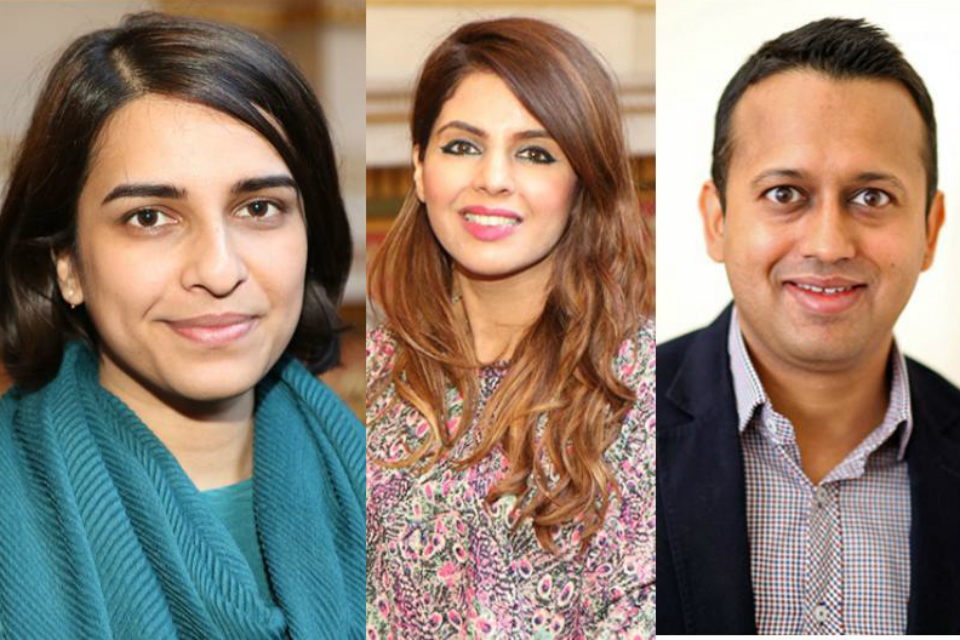Race to change the face of the diplomatic civil service
Writing in the Eastern Eye, Nikesh Mehta OBE, Fouzia Younis and Muna Shamsuddin explain why the Foreign Office must attract the best talent from all backgrounds.

On a cold autumn afternoon last month, nearly 200 British civil servants and diplomats packed into the Locarno Room at the Foreign and Commonwealth Office to mark a historic moment. For the first time in such detail, the history of black, Asian, and minority ethnic (BAME) staff in the Foreign and Commonwealth Office (FCO) – our history – was published and discussed.
The note, Black Skin, Whitehall: Race and the Foreign Office, 1945 to 2018, written by FCO historian James Southern tells the story of BAME officers in the context of decades of debate in the UK on the legacy of the Empire, immigration and integration of minority communities. It was an emotional moment for us all.
The historical parts of the note make for deeply uncomfortable reading. In the early 1950s, successive Civil Service commissioners argued that,
a person of un-English appearance or speech might be unsuitable for a situation in which he would act as a representative of the United Kingdom to foreigners.
In the mid-1960s, three high-performing civil servants from a BAME background were denied entry into the Diplomatic Service because they weren’t trusted to be loyal to the country. Seventy years ago, we suspect that the only way people like our grandparents or great grandparents would have been allowed into the Foreign Office would have been to serve tea to British diplomats.
We have come a long way since then – the FCO is now more diverse than it has ever been with more BAME ambassadors and one of the highest rates of BAME graduate new entrants across Whitehall. We can reflect on the progress led by pioneers like Noel Jones, who would go on to become Britain’s first ever BAME ambassador when he was posted to Kazakhstan in 1993; and Robin Chatterjie, who was the first BAME entrant into the diplomatic service fast stream (graduate entry). There were also enlightened politicians and civil servants who were prepared to challenge convention.
And of course, it is also down to the extraordinary resilience shown by our parents’ generation settling in the UK as Commonwealth citizens in the 1960s and 1970s and the changes they helped to introduce in wider British society. Overcoming significant hurdles including significant racism, they worked all hours, often for little money, to ensure that their children and grandchildren had the best access to opportunities.
Yet, as the note concludes, we have a long way to go. The new BAME entrants appear to be predominantly from a south Asian background. We are still struggling to attract black candidates. Too many of our BAME staff are stuck in the most junior grades. And even when you think you have finally made it, there are still people who think you have only got to where you are because of the colour of your skin.
This has to change. It matters to us that we act as agents of this change. When the three of us joined the FCO in the 2000s, we felt like fish out of water. Our extended families wondered whether it was even allowed for non-white, second-generation immigrants to be British diplomats. And in the FCO, we were acutely aware of being watched by the granite statues of former diplomats who had governed our forefathers in the colonies.
It is true that each of us has experienced some form of racial discrimination in our careers, whether that’s being refused entry into an event (because they had assumed we were drivers), being stopped more frequently at airports or military checkpoints, or simply being ignored in favour of white colleagues. However, our diversity has enabled us to develop deep relationships and build influential networks, often challenging and breaking down tired stereotypes of the quintessential British diplomat. Since we joined, we have had incredibly rewarding careers which have given us unique experiences. We feel proud and privileged to work for the FCO, to represent the UK overseas, and to play a role in keeping the UK safe, secure and prosperous. Sir Simon McDonald, the FCO’s permanent under-secretary recently said that it was “essential we make further progress to ensure our modern diplomatic service reflects the best of the diversity of the UK”. We couldn’t agree more.
Our country needs to attract the best talent from all backgrounds in society to fulfil this responsibility. This also means that we embrace and ensure that we make the most of our uniqueness and our heritage links – to be who we are.
Diversity is a huge strength for our country. Two of us come from the West Midlands, not all of us went to Oxbridge, our heritage links span three continents, we went to state and non-state schools, and speak several languages. From Baghdad to Dhaka to Kuala Lumpur, we have taken our diversity with us wherever we have been posted. For those reading this article, we would encourage you to read the history note. And if you feel, like us, that you could be a part of a bold and diverse diplomatic service, look at potential careers in the FCO and help us make history, like our parents and grandparents who didn’t accept the status quo.
We owe this to our current and future generations of British diplomats, and to the country that we represent. We hope that a future version of this note will say that the FCO recruits the very best from society irrespective of background, and that the diplomatic service at all levels now reflects modern Britain. This is not just because it’s morally right to have a diverse diplomatic service, but because our diplomacy needs it.